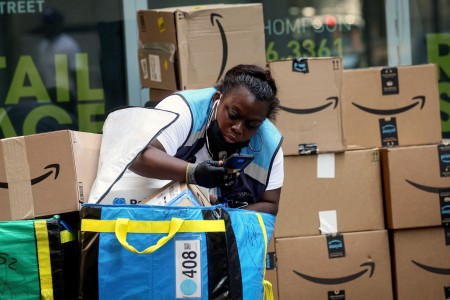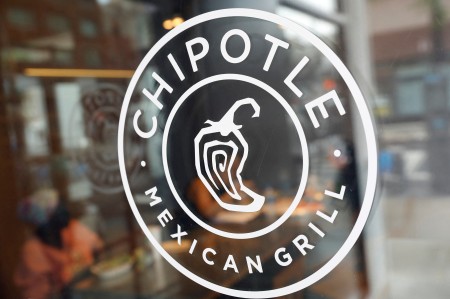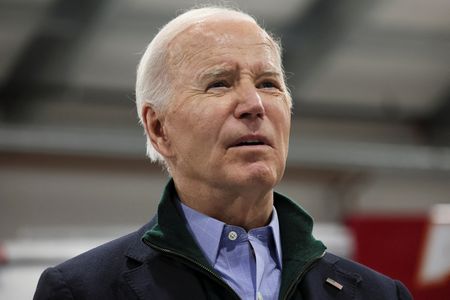By Greg Bensinger
NASHVILLE, Tennessee (Reuters) -Amazon , in its quest for greater efficiency, has developed new systems to shave seconds off each package delivery and to help customers make faster buying choices, even for new product types that they may know little about.
The company announced on Wednesday it had created spotlights within its trucks to guide delivery people to packages for each stop along a route.
The technology, which Amazon is calling Vision Assisted Package Retrieval, works by shining a green light on packages so that the deliverer does not have to waste precious seconds reading labels.
Amazon said it would equip 1,000 active delivery trucks with the tech early next year.
Then new system calls to mind a technology widely deployed in Amazon’s warehouses that shines a light on items on robotically wheeled shelves so workers can pick them and put them in bins. That system replaced one that had some workers walking up to 10 miles a day pushing carts through narrow aisles to find stowed items.
Shortening by a few seconds the time it takes for each package delivery means Amazon can increase the number of deliveries each worker makes in a shift. Today, Amazon said, delivery workers reach about 100 customers each day.
Amazon also said it is planning to add smaller warehouses attached to its Whole Foods grocery stores so that customers do not have to shop at competing grocery stores for items not offered there. That way, shoppers could order a bottle of Pepsi while shopping at a Whole Foods, which doesn’t carry the soft drink, and have that brought to them when they check out.
The first such store is in Plymouth Meeting, Pennsylvania – about 15 miles north of Philadelphia – which will start offering the service sometime next year.
At an event held at a warehouse near Nashville, Tennessee, Amazon also said it is using new artificial intelligence software that can reduce the need to spend minutes or hours researching new products, such as televisions and dog food. The online guides will include more extensive information, as well as recommendations, so that customers can make more informed decisions more quickly, the Seattle company said.
The new feature follows one announced earlier this year putting an AI search into the main Amazon website. Called Rufus, it gives users longer answers to search queries.
(Reporting by Greg Bensinger; Editing by Chizu Nomiyama and Nick Zieminski)




